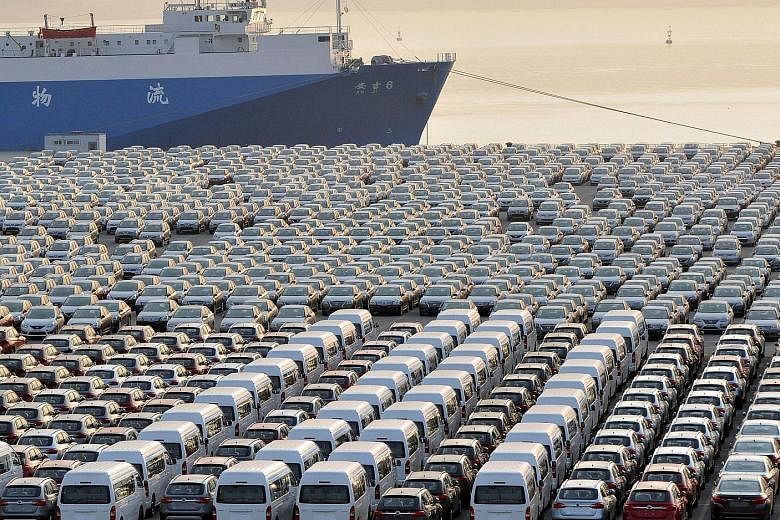BEIJING • China's exports fell more than expected last month as global demand remained stubbornly weak, but imports beat forecasts, pointing to improving domestic demand and adding to hopes that the world's second-largest economy may be slowly stabilising.
Exports fell 4.1 per cent from a year earlier, the General Administration of Customs reported, saying the foreign trade environment remains a challenge.
Imports dropped 0.4 per cent from a year earlier, the 19th straight month of declines but the smallest since they turned negative in November 2014.
The improvement likely reflected higher commodity prices but also a pick-up in domestic demand as Beijing hikes spending on big infrastructure projects to support growth.
"The worst time for Chinese exports has passed," said Mr Harrison Hu, chief greater China economist at the Royal Bank of Scotland, adding that the dollar-denominated export growth is slightly misleading due to the price changes. "The quantity of exports actually showed a subdued increase. The yuan also depreciated against a basket of currencies, which supports exports."
Along with improvement in imports, car sales data released yesterday signalled that domestic demand remains intact. Purchases climbed 11 per cent to 1.76 million units last month for a ninth gain in 10 months, according to the China Passenger Car Association.
China's May crude oil imports jumped the most in over six years, with iron ore imports the highest since December and purchases of copper up more than 19 per cent.
"Import growth is likely to edge up further for the remainder of this year as the fall in commodity prices during the second half of 2015 enters the base for comparison and the feedthrough from earlier policy easing helps prop up domestic demand," Mr Julian Evans-Pritchard, China economist at Capital Economics, said in a note. "We expect it to return to positive before long."
China's trade surplus was US$49.98 billion (S$67.55 billion) last month, versus forecasts of US$58 billion and April's US$45.6 billion. Analysts said import performance could improve further later in the year as Beijing's more than one-year-long stimulus campaign finally seems to be paying bigger dividends.
Trade still faces global headwinds. The World Bank on Tuesday cut its global growth estimate to 2.4 per cent for this year, which would be the same as last year, from the 2.9 per cent projected in January.
Continuing export weakness underscores the challenge for policymakers as lacklustre external demand gives little aid for growth, Bloomberg Intelligence economists Tom Orlik and Fielding Chen wrote in a report.
"Looking forward, moderate depreciation of the yuan should provide a cushion for competitiveness," they said. "With domestic infrastructure and real estate the only show in town, policymakers will be constrained to keep stimulus in place."
REUTERS, BLOOMBERG

